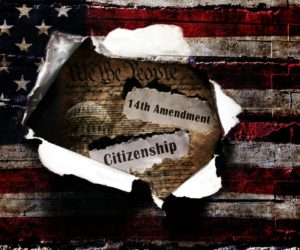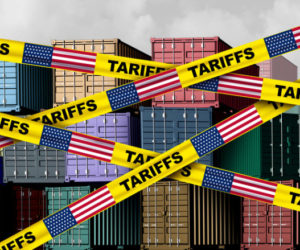
He came. He saw. His charisma was controlled.
That in a nutshell seems to be the emerging verdict on President Barack Obama’s trip to China: China kept the famous Obama charisma in check in a visit that won’t be seen as a turning point. AFP paints a portrait of a visit that was more zzzz than pizazz:
Something got lost in transit in US President Barack Obama’s visit to China — the charismatic rhetoric and dominance of mass communication that took him from nowhere to the White House.
Obama built his political persona with soaring speeches on a grand stage and by reaching out to a vast grassroots network on the Internet.
But in China, Obama’s hosts successfully stifled those prodigious public talents, keeping his message from the people with media censorship and smothering it in staid diplo-speak.
On previous foreign trips in his taxing first year in office, the president sent inspiring words winging to millions of satellite dishes in the Muslim world and sparked Obama mania in Europe.
But in China, it has been tougher to reach out to ordinary citizens. His best attempt, a town hall meeting streamed on the White House website, suffered from what was largely a nationwide media blackout.
And Obama’s talks on Tuesday with President Hu Jintao were followed by a dull public appearance, with both leaders reading out statements to the media stuffed with diplomatic code words.
The US president shuffled his papers on the lectern, scratched an eyebrow and looked across at Hu, as his host read out a long speech. The arid diplomatic translations made the occasion seem even more sterile.
And then there was the context for this meeting that by most accounts did not contain major dramatic developments: the U.S. seems on the financial descent while China is on the financial ascent. The Christian Science Monitor:
President Obama stood side by side with China’s President Hu Jintao Tuesday, but they weren’t seeing eye to eye on economics any more than on Afghanistan or Tibet.
Both the US and Chinese economies felt the squeeze of recession. Yet neither of the world’s most powerful economies seems to have changed their ways.
The US is still running a huge trade deficit and borrowing lots of money from China.
China is still racing to expand its high-tech manufacturing exports, and as part of its strategy is fixing its currency at what many economists believe is an artificially low level. A cheap yuan can help to make Chinese products more attractive on world markets.
One sign of the times: America’s industrial capacity – the nation’s ability to produce goods – has been falling for 10 straight months, says Charles McMillion, chief economist at MBG Information Services in Washington. China isn’t the only reason for the trend. But he notes that from 1948 to 2001, American industrial capacity never had a single month of decline – even though factory output would slump during recessions. That string was broken in 2002, the year after China won membership in the World Trade Organization.
Now, as China makes more of what Americans buy, Mr. McMillion says there’s a real chance that US businesses will continue to close factories – cutting US jobs even as the economy recovers.
The numbers he cites were reported by the Federal Reserve Tuesday, even as Mr. Obama was wrapping up his first presidential visit in Beijing.
The Wall Street Journal says the “awkward” meeting produced some results but much unfinished business:
President Barack Obama was set to leave China on Wednesday after an awkward summit with some achievements but a long list of unfinished business — a result that suggests challenges ahead for the U.S. as it struggles to come to terms with Asia’s increasingly assertive superpower.
The president secured a far-ranging framework for cooperation Tuesday with Beijing. But that deal was announced as frictions between the two nations appeared to increase over human rights and economic policy.
President Obama and Chinese leader Hu Jintao issued their ambitious statement on cooperation in a clumsy fashion — at a media “availability” where they took no questions, didn’t address each other and exhibited body language that seemed to say they had been frustrated by the entire exercise.
But the Washington Post saw some progress — on climate change:
Buried in the text of Tuesday’s joint declaration between President Obama and Chinese President Hu Jintao was a hopeful clause on climate talks: The Obama administration is likely to offer emission-reduction targets at next month’s climate summit, as long as the Chinese offer a proposal of their own.
U.S. reluctance to set a short-term emissions goal has been a sticking point in the United Nations-sponsored talks for nearly a year. Almost all industrialized nations, and many developing countries, have announced plans to curb their greenhouse-gas output by 2020. Neither the United States nor China — which is not obligated to do so under the U.N. framework, even though it ranks as the world’s biggest emitter — has done so, thereby hampering the prospects of an agreement.
A senior Obama administration official said that any U.S. target would still be contingent on congressional action. The House-passed climate bill includes a 17 percent reduction in greenhouse gases by 2020 compared with 2005 levels; the Senate Environment and Public Works Committee backed a 20 percent cut, but key senators have vowed to make that less ambitious.
Just this weekend the Obama administration endorsed a Danish proposal to settle for a political accord on global warming in Copenhagen next month, while deferring to 2010 the codification of a legally binding international treaty. According to the joint declaration, “an agreed outcome at Copenhagen should . . . include emission reduction targets of developed countries and nationally appropriate mitigation actions of developing countries.”
The cartoon by Paresh Nath, The Khaleej Times, UAE, is copyrighted and licensed to appear on TMV. Unauthorized reproduction prohibited. All rights reserved.
Joe Gandelman is a former fulltime journalist who freelanced in India, Spain, Bangladesh and Cypress writing for publications such as the Christian Science Monitor and Newsweek. He also did radio reports from Madrid for NPR’s All Things Considered. He has worked on two U.S. newspapers and quit the news biz in 1990 to go into entertainment. He also has written for The Week and several online publications, did a column for Cagle Cartoons Syndicate and has appeared on CNN.
















